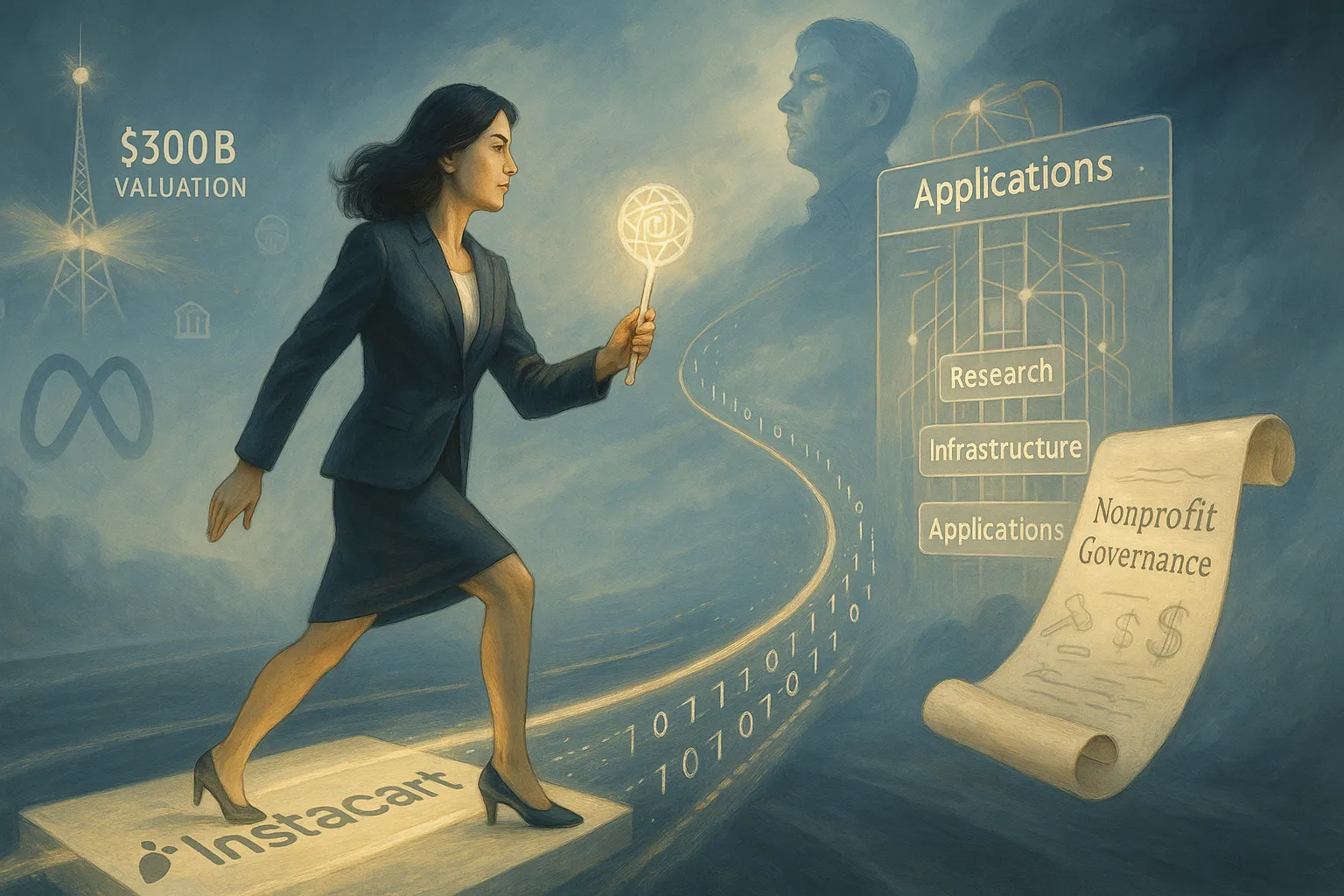Instacart CEO Fidji Simo will run OpenAI's applications business, a new role that puts her in charge of the company's products and operations. She starts later this year and will report to OpenAI CEO Sam Altman.
The move comes as OpenAI manages rapid growth across multiple business areas. The company now serves hundreds of millions of users worldwide while building out massive AI infrastructure projects, including the $500 billion Stargate initiative.
"Applications brings together existing business and operational teams responsible for how our research reaches and benefits the world," Altman wrote in a company-wide message. The restructuring lets Altman focus more on research, computing, and safety systems as OpenAI develops more advanced AI capabilities.
Simo brings substantial tech industry experience to the role. Before Instacart, Simo ran Facebook's main app for ten years. She's sat on OpenAI's board since last March, getting a close look at how the company runs.
At OpenAI, Simo will oversee several key executives including Chief Operating Officer Brad Lightcap, Chief Financial Officer Sarah Friar, and Chief Product Officer Kevin Weil. These leaders previously reported directly to Altman.
The hiring reflects OpenAI's evolution from a research lab into a major technology company. Founded with a mission to ensure artificial general intelligence benefits humanity, OpenAI now operates as both a product company and infrastructure provider while maintaining its research focus.
Recent Growth and Challenges
OpenAI got $40 billion from investors in March, with SoftBank putting up most of the money. The deal made OpenAI worth $300 billion. But here's the catch - they'll only get the last $10 billion after they change how the company is set up.
The company recently modified its restructuring plans after facing scrutiny. Earlier proposals would have given a new corporation control over the non-profit that governs OpenAI. This drew criticism from various quarters, including OpenAI co-founder Elon Musk, who sued the company over concerns about profit motivations overshadowing AI safety.
In response, OpenAI announced this week that its non-profit arm will maintain control of the organization. This decision precedes Simo's appointment and suggests careful attention to balancing growth with the company's original mission.
At Instacart, Simo's exit comes during a strong quarter. The company will pick her replacement from its current leadership team, and she'll stay on as board chair. "Our last earnings were solid and our strategy works," she told employees. "That made this a tough call."
The news leaked early, forcing both companies to speed up their announcement by weeks. Simo will stay at Instacart through the summer to help with the handoff.
Other AI companies are also beefing up their executive ranks as the technology takes off. Simo's experience running a public company could help OpenAI navigate Washington - she joins just as lawmakers push for more oversight of AI development.
Under the new setup, Altman keeps final say on all parts of OpenAI while spending more time on technical problems. His focus: pushing AI research forward while making sure new systems are safe.
"We're still one OpenAI," Altman wrote to staff.
The move suggests OpenAI is preparing for its next phase of growth while trying to maintain the integration of its research, infrastructure, and product teams.
Why this matters:
- OpenAI's hiring of a seasoned tech executive signals its transformation from research lab to major technology company, while highlighting the increasing competition for leadership talent in AI
- The restructuring shows how AI companies are adapting their organizations to handle multiple complex missions: advancing research, scaling infrastructure, and delivering products - all while managing safety concerns










